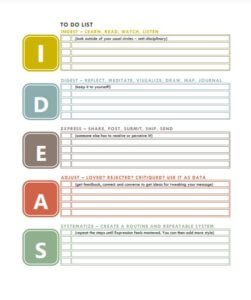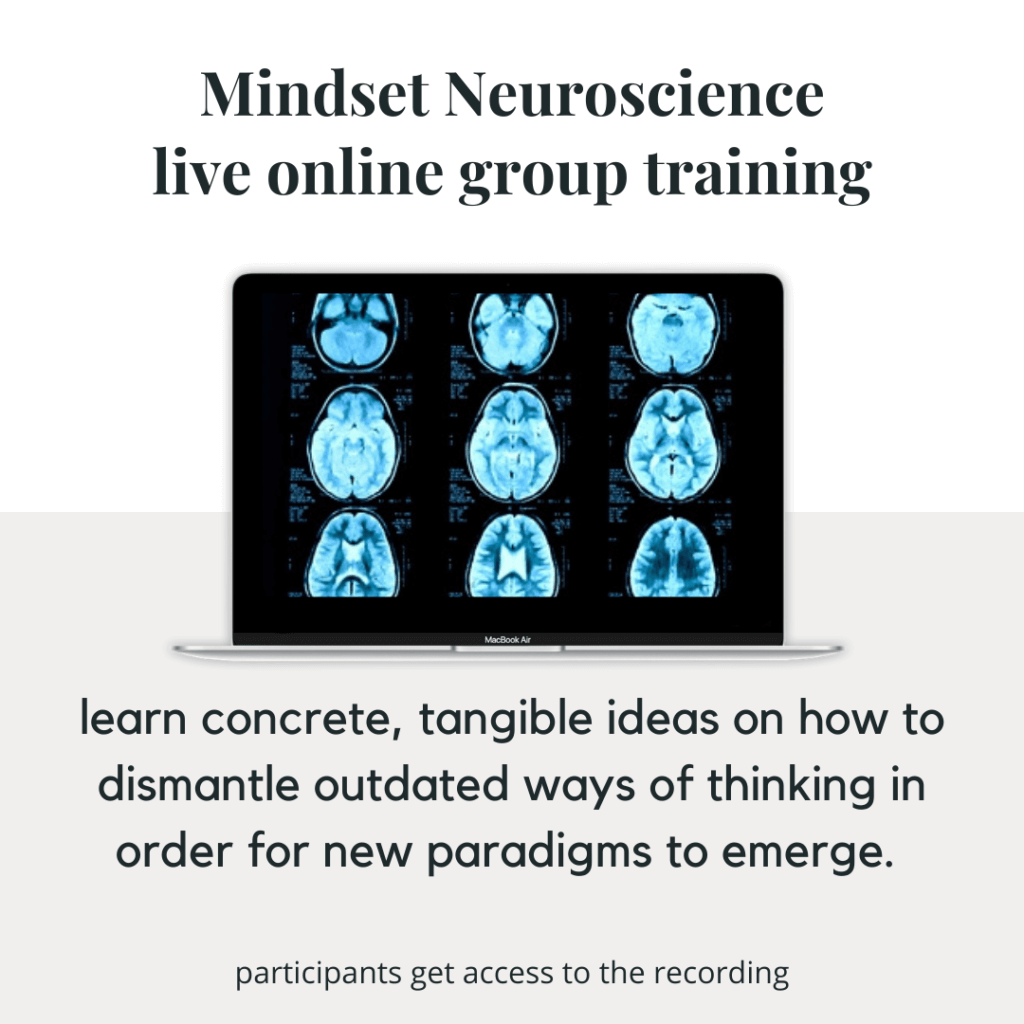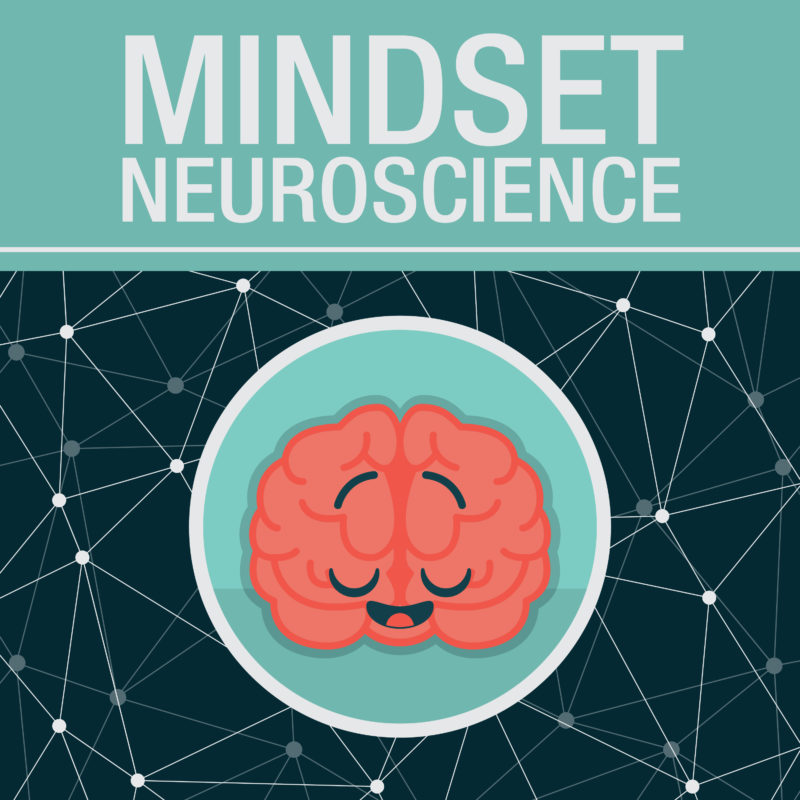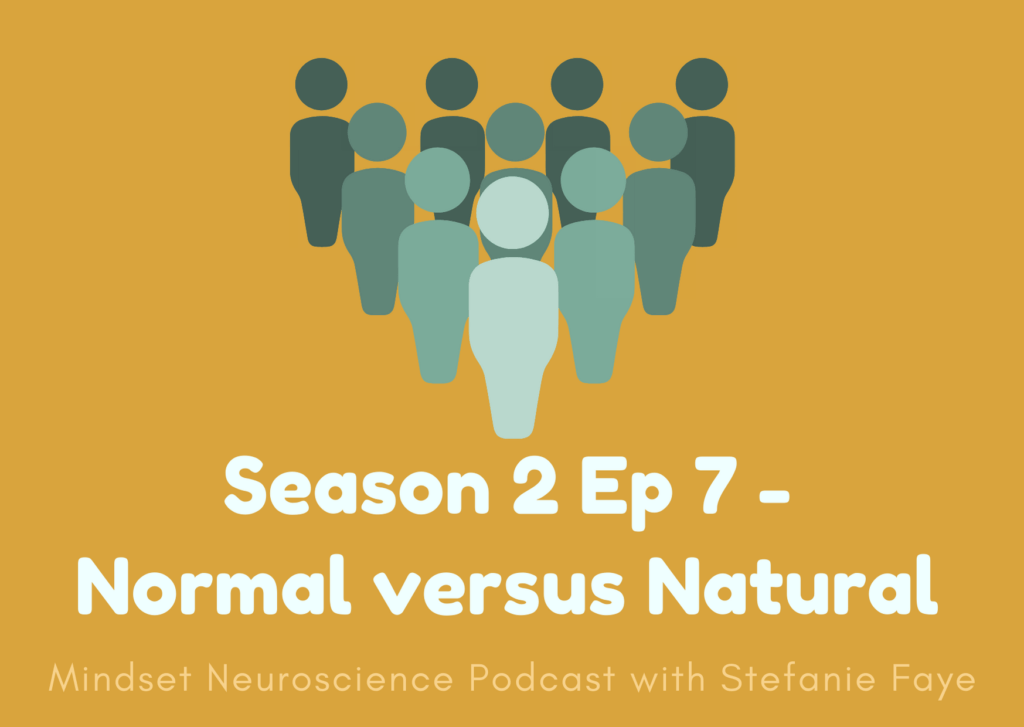
When you’re learning or creating something new, your brain-body system requires a set-up of micro-movements and attentional control that it is not currently using. It requires a neuro-mechano-chemical combination that it has never attempted before.
Learning or Creating something new can include:
- A new combination of movements you’ve never done before
- Typing words you’ve never typed before
- Emailing someone you’ve never met
- Speaking to a family member in a way you’ve never tried before
- A new habit, behavior, self-regulation strategy, project, work of art, business, relationship, mindset
- A new level of your current business or personal relationships, wellbeing, sense of fulfillmen
If it’s new and doesn’t yet exist and you are taking action in order for it to come into existence, it's an act of learning or creating
It’s about an observable, tangible expression (even if no one else is around) that has never been expressed before. And it always requires some form of movement. Even if that movement is subtle,
If you’ve never done it before - and the result is something someone else could give feedback on, it’s a creation.
When you are consuming or staying in a default or familiar mode of operation, there is nothing particularly new about the set-up. The movements are familiar. The neurochemical state is familiar.
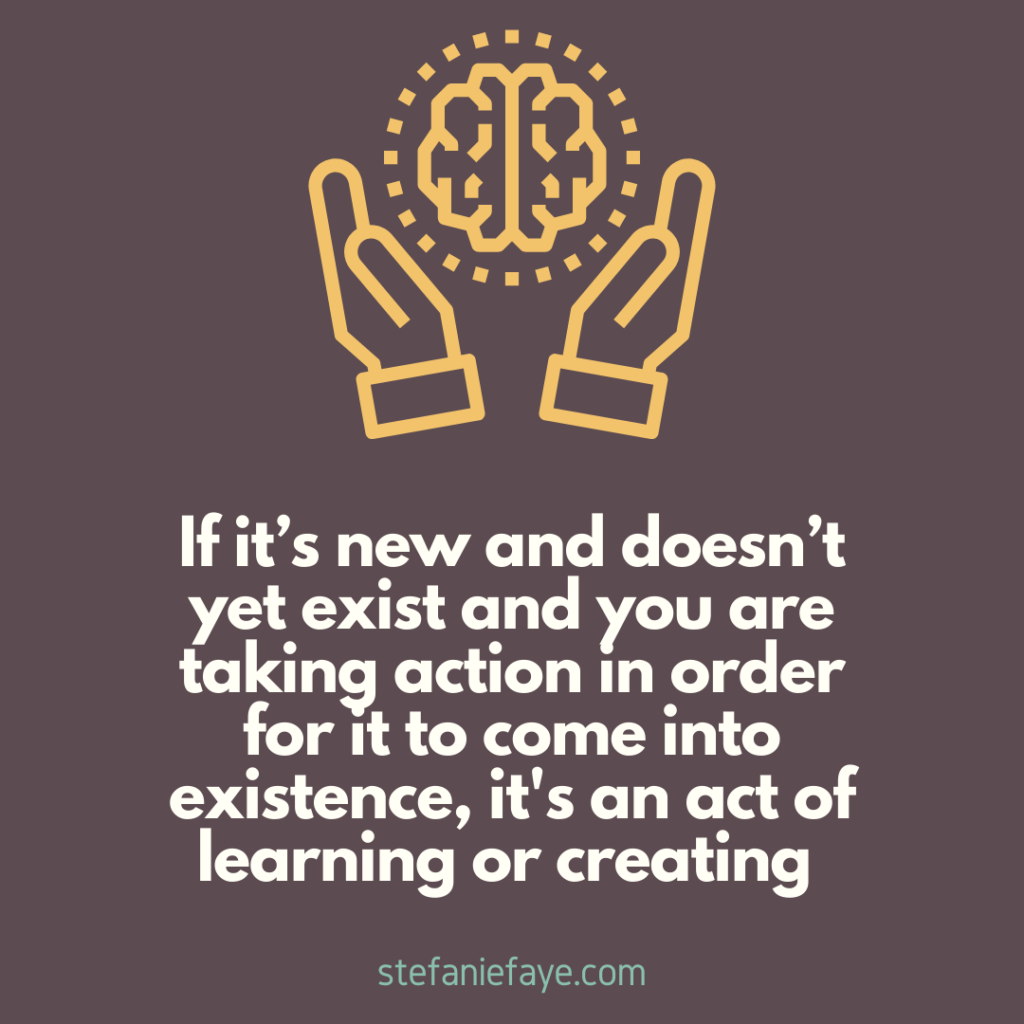
It’s easy to consume.
It’s easy to scroll social media. It’s easy to watch television. It’s easy to shop and play video games on your phone. All the stimulus and ‘goals’ are there.
In consumption mode, we don’t need to know about optimal brain functioning for solving problems.
If you’re really tired or have ‘brain fog’, going on your phone to scroll or play games won’t feel difficult . It may even feel like a boost because of the ease of getting your hit of reward hormones.
During that consumption period, the stimulus magnetically pulls your awareness in ways that lead you to forget that you don’t feel fulfilled at your job. Or that you can tell something is missing from your relationship. Or that you’d like to feel better in your body.
When you do that enough, it feels more normal to consume and less comfortable to learn or create
When you consume excessively, that neuro-mechano-chemical mode becomes so familiar that the more challenging mode of learning and creating can feel so unfamiliar that it becomes something your brain-body system avoids whenever possible.
This might be normal behavior for many people. But normal doesn’t necessarily mean it’s our best option.
Normal is based on historical data. It’s based on what has happened the most often in the past. Our past ‘normal’ can make it easy to not question if there is more that’s possible in terms of wellbeing and a deeper sense of meaning for our life. (this goes for us as individuals as well as for us as a society and species). It’s ‘normal’ to be ‘meh’, to feel ok but not great. To run at about 60-70 percent of your potential (if you could put a number to it).
But what we really, truly, deeply need to understand is that the ‘normal mode’ of consuming and doing the same combination of movements day after day without challenging our brain-body to higher and higher levels of creation and exploration is not NATURAL.
The reason for this is because natural is about the inherent nature of a system or object. About its inherent capabilities and features. It’s natural for a chair to stand still.
But a chair isn’t a system. It doesn’t need other chairs or objects to perform its function as a chair. It’s also not complex and it’s not adaptive. There is nothing inherent about the components of a chair that would get it to do anything differently.
Humans, however, are systems. And in particular, we are complex adaptive systems. There are inherent features of us that are natural. The more we align with our nature as complex adaptive systems, the more we develop our complex, adaptive capacities. That means we get to solve our own problems more efficiently and effectively. And as we move through one realm of complex adaptability, we get to level up again and become even more masterful problem solvers.
Our nature is to climb higher and higher on a never-ending ladder of complex problem-solving.
When we consume and repeat without seeking out new problems to creatively solve, we degrade and deprive our mind-brain-body’s inherent faculties. when we stop creating new combinations of movement, thought, sensations that get expressed in tangible visible ways, we are going against our own nature.
The expression of what we feel inside into visible, tangible, and mechanical energy serves the purpose of creating a feedback loop that is complex and adaptive. If we don’t release our thoughts and feelings and energy into new series of movements, we block our brain from getting new feedback. When we don’t give our brain new and changing feedback, we rob it of firing in new ways, where networks that were never connected before all of a sudden can create an association.
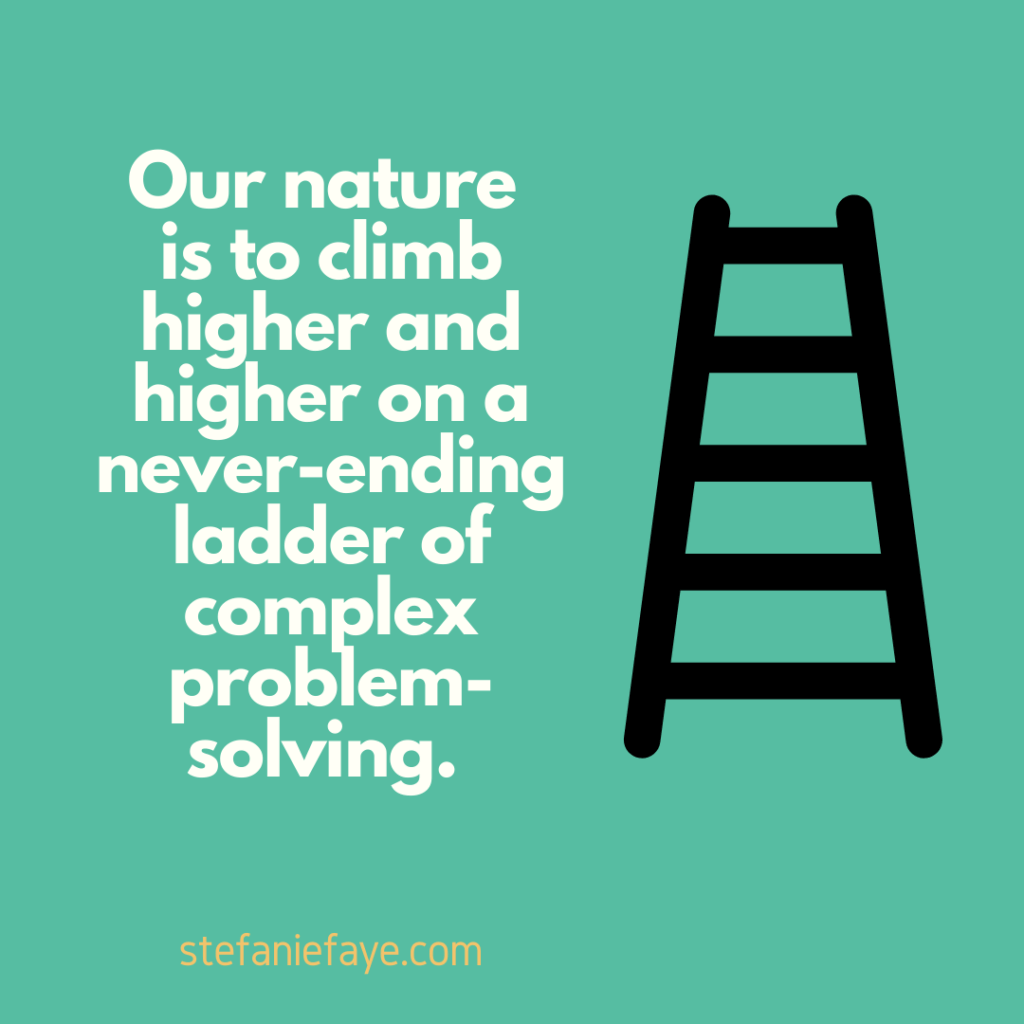
Rigidity and excessive repetition results in suboptimal functioning.
Connectivity and flexibility are key to the highest level of functioning because they lead to the highest number of choice points for responding to new and unfamiliar situations.
Responding to new and unfamiliar situations is the pinnacle of ‘human-ness’.
It’s why we are found in almost every kind of ecosystem on the planet, regardless of whether that ecosystem is actually habitable. If it’s not, we create something that’s never existed before in order to make it work (think of air conditioning and pipelines bringing water to Las Vegas in the middle of a desert as an example).
What I’ve observed over the years is that when people engage in constant consumption (I especially see this with phones), they become less able to respond adaptively and creatively to a new set of stimulus. Unfamiliar situations are more likely to overload or overwhelm their system. They are not used to using these extremely sophisticated - yet NATURAL - faculties of the human nervous system.
Being on the phone or whatever that very repetitive behavior is (this includes sleeping excessively, sitting and ruminating about a situation) becomes ‘normal’ to them. When they feel too mentally tired to try a new perspective or behavior, they think it’s normal to not really ‘feel like it’.
Because they’re not challenging their brain-body system, they also don’t support it with the nutrients it needs to function at a higher, more creative level. if all you do in your downtime is scroll or play games on your phone, it doesn’t really matter if all the sugar you consumed that day is making you fatigued.
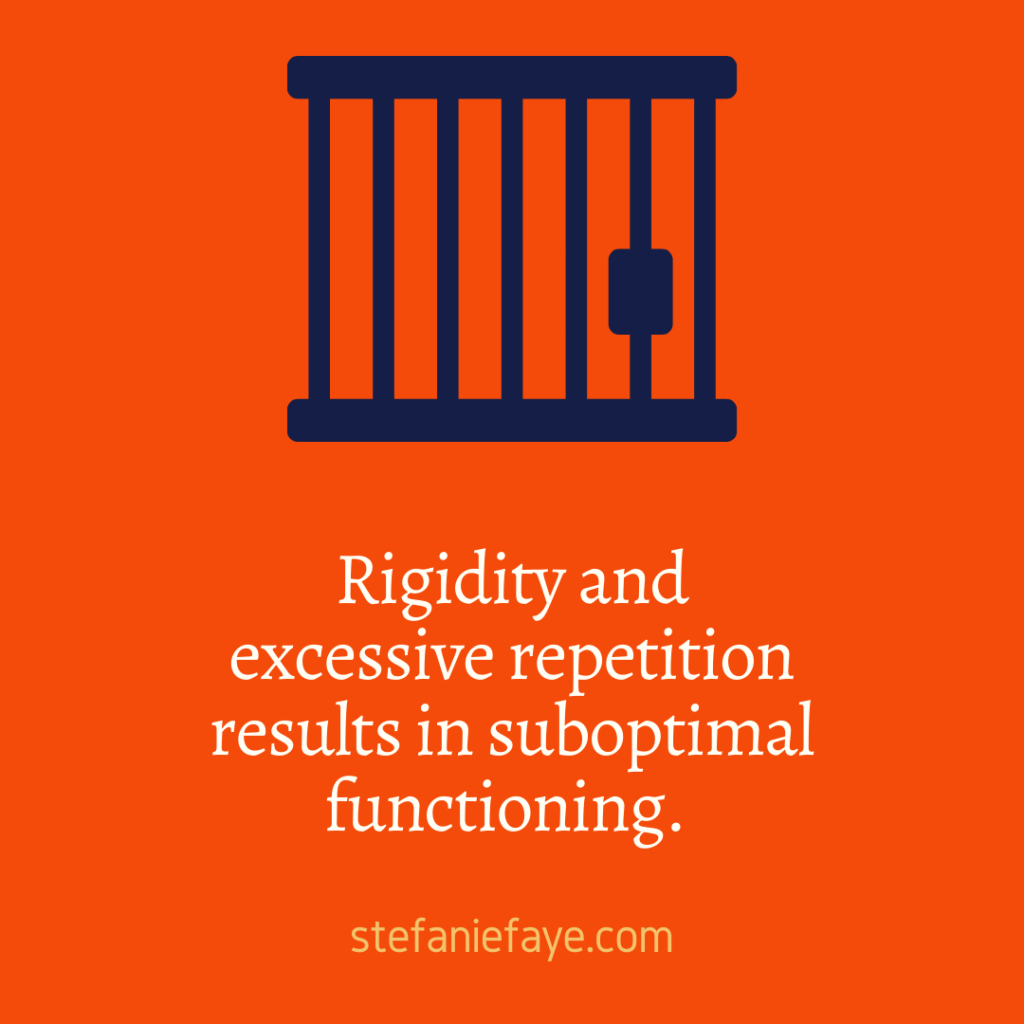
There are deeper reasons as to why we may be stuck in repetitive or unhealthy patterns, which I’ll continue to go into in future articles.
But for today…
Here is one idea of how we can align with our nature as complex adaptive systems from a mechano-behavioral level.
The following IDEAS acronym is a rhythm I’ve found helpful for moving through learn-create-express process. You can also download this as a free worksheet.
*I also covered this in Episode 9 of season 1
Ingest:
yes, we need to ‘consume’ information. Take time to explore a completely new field you’ve never learned about before. Just don’t stay stuck here. I either will have a section of a day for this (1-3 hours) or will devote a certain day in a week here and then move on to the next phase.
Digest:
look for how to connect what you’re learning to how it manifests in your own life and what you observe in others. Draw, diagram, journal about it.
Express:
find a way to talk, draw, teach about how the information you’re learning about applies to your life and how it can help solve some type of problem. Does it make you ‘feel better’ somehow? How does it do this? Sometimes a new perspective creates a mindset shift that helps you see a situation more clearly. Try to describe or express this to someone. Feedback from someone adds essential data to the problem solving process. The relevance of my content comes from a never-stopping process of explaining what i’m learning to other people (through posting, coaching, teaching).
Adapt:
after expressing what you’ve learned or created to someone, integrate the results of this into your understanding. Repeat the entire process again from this new level of complexity.
Systematize:
find ways to make this a habit or routine.
I wake up every morning with a ritual. It involves meditation, gratitude, journaling, brainstorming, and diagramming. I then seek out a new perspective. The ideas of what to learn about can come from hearing someone on a podcast the day before, looking at recommended titles on Amazon as I search for a book I heard about it. It can also come from reading the references on a research article I enjoyed. Sometimes it’s just an idea that pops into my head.
Even if it’s something I have no idea how it could be related, I still look into it. For example, if tree root systems or radio antennas pop into my head, I look it up! It is ASTOUNDING the types of connections we can make when we continually expose ourselves to new information.
The more we make this a habit and a system, the more our brain-body system develops abilities to notice the relevance of data for problem solving.
I can’t say this enough
We are:
COMPLEX
ADAPTIVE
SYSTEMS
Our NATURE is to adapt to ever-changing, increasingly difficult and complex situations that involve other complex systems so that our adaptive problem-solving faculties become more honed and finely tuned.
Your challenge question: what is something that you have accepted as normal that may actually not be your most natural behavior?
Please add your comments in the comment section below so I can respond!
Ps. - one last note on this… because of our complex nature, human-to-human relationships and interactions are one of the most challenging forms of problem solving we can test our limits with.
Join with like minded people who are leveling up to their next realm of adaptive complexity at the July 24th Mindset Neuroscience online class
The key to a powerful, growth-oriented mindset is the ability to break apart the logic of an old paradigm and to display its weaknesses. This is a skill that can serve us as we challenge ourselves to become learners and therefore mistake-makers.
In the July 24th online Mindset Neuroscience class, you'll
- discover body and sense-based pillars of how mindsets get developed and transformed
- learn concrete, tangible ideas on how to dismantle outdated ways of thinking in order for new paradigms to emerge
- get tools on how to help others do the same
- find out how to customize this approach depending on who you're speaking with
- get an audio and video recording of the session
